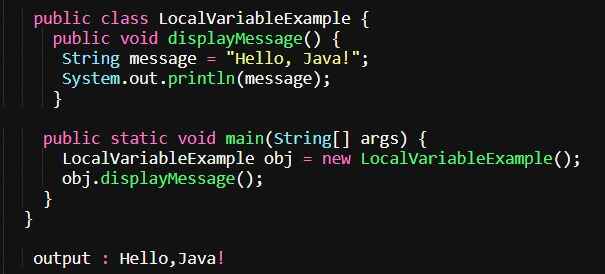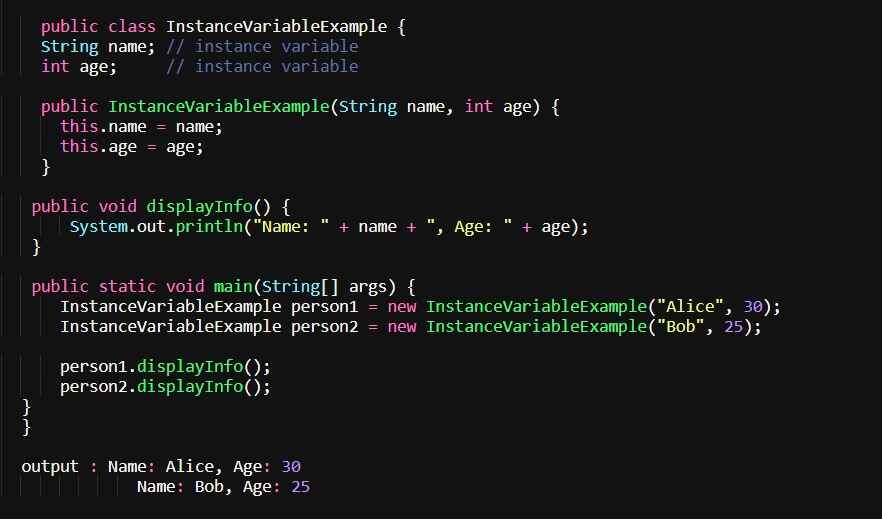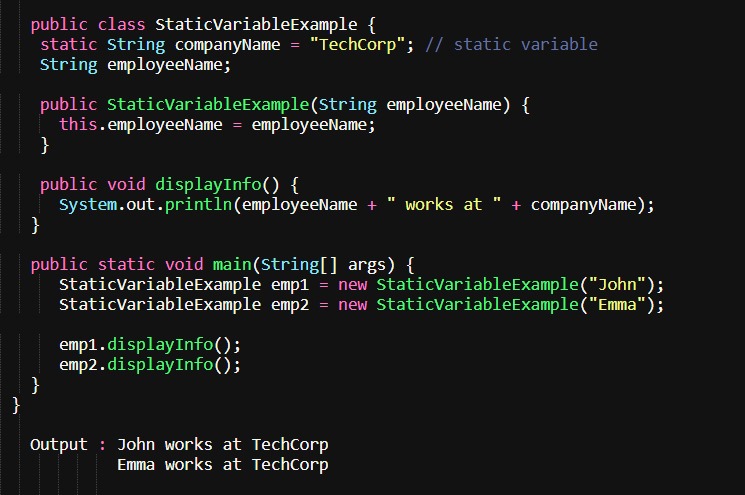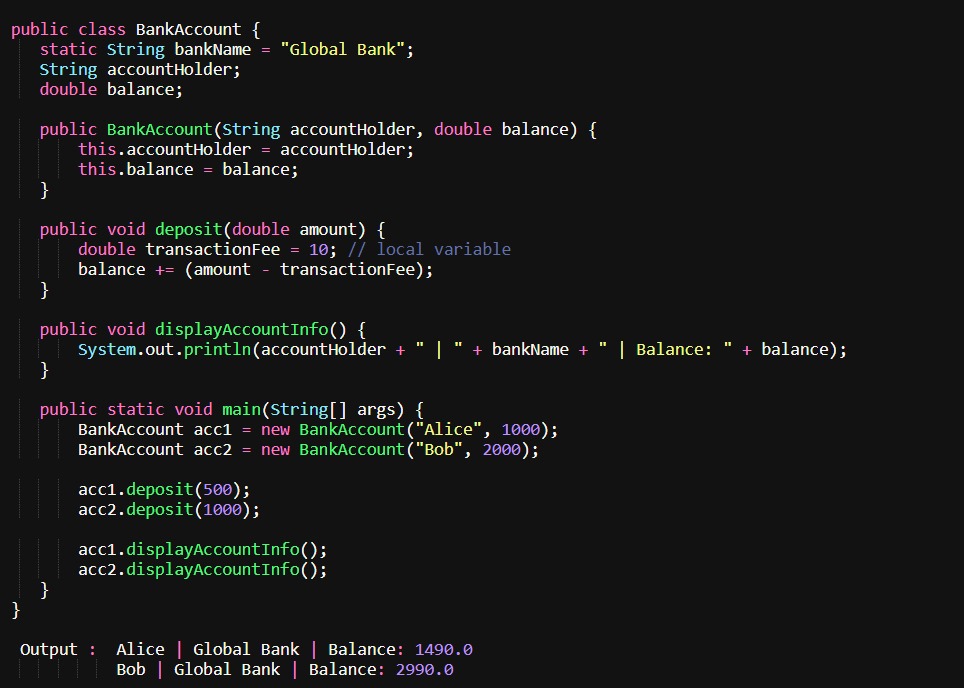Introduction :
In programming, variables are the basic units of every application. They serve as storage containers for data, allowing programs to store, manipulate, and retrieve information.
When learning Java, one of the first concepts you’ll encounter is variables. You will look at how to declare them, assign values, and use them well. Understanding variables is important because they directly affect your code’s readability, performance, and maintainability.
In this guide, we’ll cover:
– What variables are in Java
– Types of variables
– Syntax and rules
– Examples for each type
– Real-world applications
– Best practices
What is a Variable in Java?
A variable in Java is a named memory location used to store data that can change during the program’s execution.
Think of a variable like a labeled box where you can store and retrieve information as needed.
Example :
int age = 25; // ‘age’ is a variable storing the integer value 25
Here:
int → data type
age → variable name
25 → value
Variable Declaration Syntax
The basic syntax to declare a variable in Java is:
dataType variableName = value;
Example:
String name = “John”;
double price = 19.99;
boolean isActive = true;
Rules for Naming Variables in Java
When creating variables, follow these rules:
- Must start with a letter, underscore ( _ ), or dollar sign ($).
- Cannot start with a digit.
- No spaces or special characters (except _ and $).
- Must not be a Java keyword (int, class, for, etc.).
- Use camelCase for naming (firstName, totalAmount).
Types of Variables in Java
Java variables can be classified into three main types based on their scope and lifetime:
1. Local Variables
Local variables are declared inside methods, constructors, or blocks and can only be accessed within that scope.
Key Points:
Must be initialized before use.
Cannot have default values.
Created when the method is called and destroyed after it finishes.
Example:

2. Instance Variables
Instance variables are declared inside a class but outside any method. They belong to an object, and each object has its own copy.
Key Points:
– Have default values (e.g., 0 for int, null for String).
– Accessed via object references.
– Lifetime: Exists as long as the object exists. Example:
Example :

3. Static Variables (Class Variables)
Static variables are declared with the static keyword inside a class but outside any method. They belong to the class and not to objects.
Key Points:
– Shared among all objects of the class.
– Initialized only once when the class loads.
– Accessed using the class name.

Difference Between Local, Instance, and Static Variables
| Feature | Local Variable | Instance Variable | Static Variable |
|—————————–|————————|———————————–|——————————-|
| Declared in | Method/block | Class (outside methods) | Class (outside methods) |
| Scope | Inside method | Inside class (per object) | Inside class (shared) |
| Default value | None | Yes | Yes |
| Memory allocation | On method call | On object creation | At class load time |
Real-World Applications of Variables in Java
E-commerce applications: Store product details like price, stock, and name.
Banking systems: Maintain account balances (instance variable), bank name (static variable), and temporary transaction values (local variables).
Game development: Store player health, score, and game settings.
Best Practices for Using Variables
- Use meaningful names—price is better than p.
- Initialize variables properly to avoid NullPointerException.
- Minimize scope—keep variables as local as possible.
- Use constants for fixed values (final keyword).
- Avoid magic numbers—replace them with named constants.
Case Study: Using Different Variable Types in a Banking App
Imagine a simple banking system where:
– Static Variable → Bank name (shared by all accounts)
– Instance Variables → Account holder name and balance (specific to each account)
– Local Variable → Temporary transaction amount during deposit/withdrawal
Example:

Conclusion :
Variables are the backbone of any Java program. They allow data to be stored, manipulated, and retrieved. Understanding local, instance, and static variables helps you write clean, efficient, and maintainable code. By following best practices and understanding variable scope, you can avoid common programming errors and build scalable applications.
Looking for beginner-friendly Java content, Spring Boot tutorials, or DSA tips? Visit the5amcoder.com and improve your coding skills one concept at a time.
FAQs – Java Variables
1. What is the default value of an uninitialized variable in Java?
Answer : Local variables have no default value. Instance and static variables have defaults (0 for int, null for objects).
2. Can a variable name start with a number in Java?
Answer : No, variable names must start with a letter, underscore, or dollar sign.
3. Are static variables stored in heap memory?
Answer : Static variables are stored in the method area of the JVM, not in the heap.
4. Can I declare multiple variables in a single line in Java?
Answer : Yes, but it’s clearer to declare them separately.
Example: int x = 10, y = 20;
5. Can local variables be static in Java?
Answer : No, local variables are created and destroyed with method calls, while static variables have a longer lifetime.
6. Are variables case-sensitive in Java?
Answer : Yes, age and Age are considered different variables.
